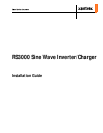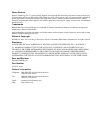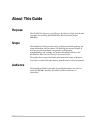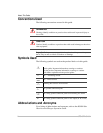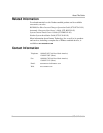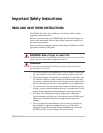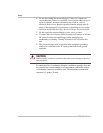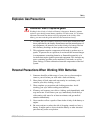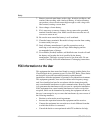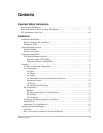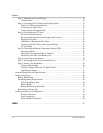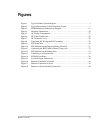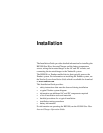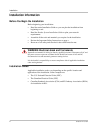
Safety
975-0171-01-01 vii
Explosive Gas Precautions
1. To reduce the risk of battery explosion, follow these instructions and
those published by the battery manufacturer and the manufacturer of
any equipment you intend to use in the vicinity of a battery. Review
the cautionary markings on these products and on the engine.
2. This equipment contains components which tend to produce arcs or
sparks. To prevent fire or explosion, do not install the inverter/charger
in compartments containing batteries or flammable materials or in
locations that require ignition-protected equipment. This includes any
space containing gasoline-power machinery, fuel tanks, as well as
joints, fittings, or other connections between components of the fuel
system.
Personal Precautions When Working With Batteries
1. Someone should be within range of your voice or close enough to
come to your aid when you work near a lead-acid battery.
2. Have plenty of fresh water and soap nearby in case battery acid
contacts your skin, clothing, or eyes.
3. Wear complete eye protection and clothing protection. Avoid
touching your eyes while working near batteries.
4. If battery acid contacts your skin or clothing, wash immediately with
soap and water. If acid enters your eye, immediately flood the eye
with running cold water for at least ten minutes and get medical
attention immediately.
5. Never smoke or allow a spark or flame in the vicinity of the battery or
engine.
6. Be extra cautious to reduce the risk of dropping a metal tool onto a
battery. It might spark or short-circuit the battery or other electrical
parts that may cause an explosion.
WARNING: Risk of explosive gases
Working in the vicinity of a lead-acid battery is dangerous. Batteries generate
explosive gases during normal battery operation. For this reason, it is of utmost
importance that each time before servicing equipment in the vicinity of the
battery, you must read this guide and follow the instructions closely.



